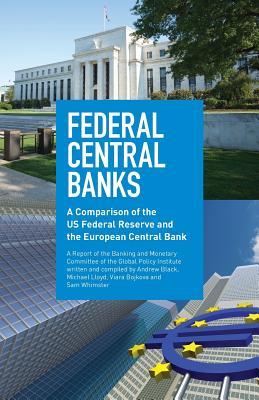Federal Central Banks is a unique study that critically examines the role and impact of central banks in federal and confederal political systems.
- It conducts a detailed examination of the history, design and operation of central banking in the United States and in the European Union.
- The contradiction between the centralizing features of banking and monetary policy and the political and economic expectations of pluralist federal democracy is explored.
- Regional economic disparities are seen to be amplified by modern 'independent' central banking.
- The response of the US Treasury and Federal Reserve to the GFC is rated as superior to immature Eurozone institutions. But both underperformed in not providing adequate fiscal-monetary solutions.
- Quantitative easing rescued the financial sector from collapse, but exacerbated wealth inequalities and failed to provide a sufficiently rapid economic recovery.
- Federal level banking reforms need to go hand in hand with democratic accountability.
- The Eurozone governance structures are dysfunctional and undemocratic and should be reformed.
